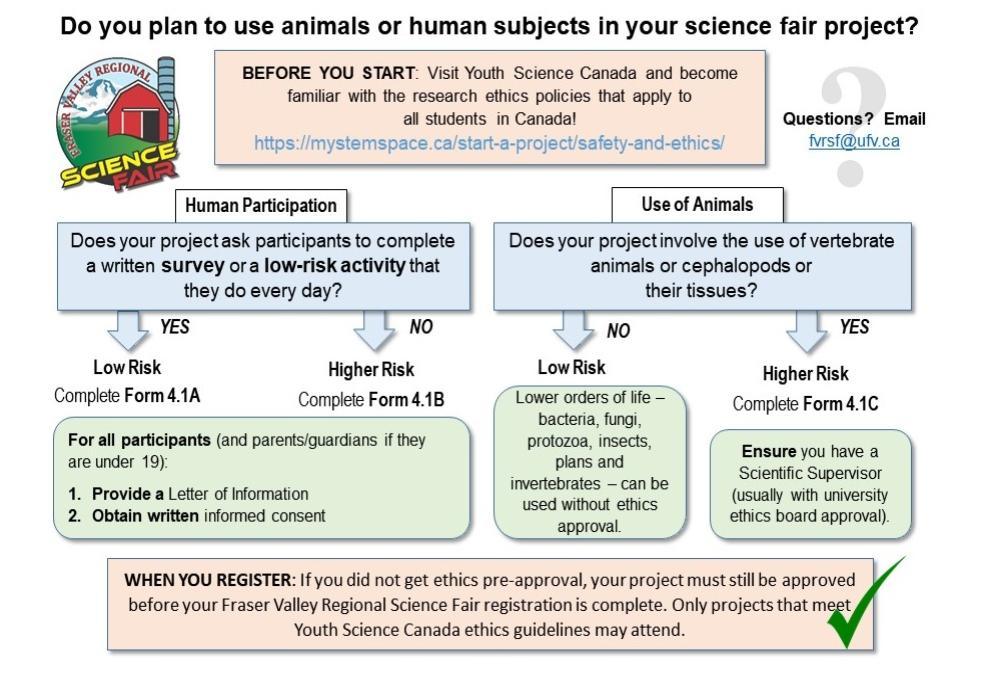Good STEM is safe STEM!
Your safety is important. When working on your STEM idea, it is important to always put safety first. It is your responsibility to take steps to keep yourself and others safe.
Ask yourself:
Safety Questions
- Have I been trained to do this?
- Do I have permission?
- Do I have adult supervision?
- Is there a safer way to do this?
- Do I have the required safety materials and clothing?
- Am I putting myself or others in danger? (including animals and the environment.)
- What is my safety plan if something goes wrong?
 Remember: If something about your project feels unsafe, it probably is! DO NOT continue until you can do so safely.
Remember: If something about your project feels unsafe, it probably is! DO NOT continue until you can do so safely.
Good STEM is ethical STEM!
Ethics Questions
- Does my idea involve testing people or animals? (Includes animal tissue, blood, etc.)
- Could my idea cause harm to people or animals?
- Before starting, have I read the Ethics in STEM document and made a plan to make sure my idea is ethical? (You can find these resources at mySTEMspace.ca)
- Do I have an adult supervisor to support me in my work?
- Is there a more ethical way to do this?
 Remember: If something about your project feels unethical, it probably is! DO NOT continue until you can do so in an ethical manner.
Remember: If something about your project feels unethical, it probably is! DO NOT continue until you can do so in an ethical manner.
Please visit Youth Science Canada's Policies to see all of the Safety & Ethics resouces and forms.
Research Ethics - Why Do We Need It?
Ethics is a branch of philosophy that deals with right and wrong and the development of guidelines that distinguish between acceptable and unacceptable behaviour. Scientists who carry out research projects involving humans or animals spend a lot of time thinking not only about the scientific content of their work, but also about the potential impact on the health, privacy, and dignity of the subjects participating in their studies.
All projects at the Fraser Valley Regional Science Fair (FVRSF) must meet the Youth Science Canada ethics policies, which also apply to projects at the national Canada-Wide Science Fair. We encourage students and teachers to become familiar with these guidelines – not only to avoid disqualification and disappointment, but also to understand the basic principles of research ethics.
Ethics Requirements
Youth Science Canada (YSC) has developed policies that apply to science fair projects completed by all elementary and high school students in Canada. You must follow these guidelines in order to qualify for participation in the FVRSF.
Complete guidelines regarding the use of humans and animals in student research projects can be found on the YSC website. To help you determine whether these guidelines apply to your project and which forms you need to fill out, please review our ethics flow chart below. If your project involves animal or human research, it is mandatory that you pay special attention to the ethics flow chart. To avoid any surprise, review the guidelines before you start working on your project and before you prepare your display for the fair!

